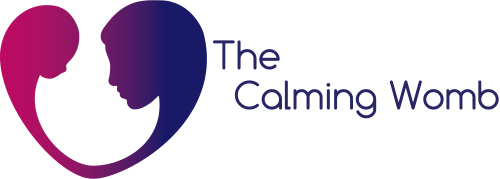
Lactation
Making the decision to breastfeed is a very personal matter and one that needs to be honored and respected.
Because every pregnancy is different and every pregnant mother has specific needs during gestation, please consult with your OB-GYN doctor, midwife, Pre-natal Registered Lactation Specialist. Below are articles meant to inspire you and to enhance your mindfulness and curiosity. Please consult your with your Pre-perinatal doctor, midwife and lactation teams as this website’s articles are no substitution for Pre-perinatal Medical care. It is also one that’s likely to draw strong opinions from friends and family.
Many medical authorities, including the American Academy of Pediatrics (AAP) and the American College of Obstetricians and Gynecologists, strongly recommend breastfeeding. But you and your baby are unique, and the decision is up to you. This overview of breastfeeding can help you decide.
What Are the Benefits of Breastfeeding for Your Baby?
Breast milk provides the ideal nutrition for infants. It has a nearly perfect mix of vitamins, protein, and fat — everything your baby needs to grow. And it’s all provided in a form more easily digested than infant formula. Breast milk contains antibodies that help your baby fight off viruses and bacteria. Breastfeeding lowers your baby’s risk of having asthma or allergies. Plus, babies who are breastfed exclusively for the first 6 months, without any formula, have fewer ear infections, respiratory illnesses, and bouts of diarrhea. They also have fewer hospitalizations and trips to the doctor.
Breastfeeding has been linked to higher IQ scores in later childhood in some studies. What’s more, the physical closeness, skin-to-skin touching, and eye contact all help your baby bond with you and feel secure. Breastfed infants are more likely to gain the right amount of weight as they grow rather than become overweight children. The AAP says breastfeeding also plays a role in the prevention of SIDS (sudden infant death syndrome). It’s been thought to lower the risk of diabetes, obesity, and certain cancers as well, but more research is needed.
Are There Breastfeeding Benefits for the Mother?
Breastfeeding burns extra calories, so it can help you lose weight faster. It releases the hormone oxytocin, which helps your uterus return to its pre-pregnancy size and may reduce uterine bleeding after birth. Breastfeeding also lowers your risk of breast and ovarian cancer. It may lower your risk of osteoporosis, too.
Since you don’t have to buy and measure formula, sterilize nipples, or warm bottles, it saves you time and money. It also gives you regular time to relax quietly with your newborn as you bond.
Prescription Drugs + Breastfeeding
Talk with your doctor before starting to breastfeed if you’re taking prescription drugs of any kind. Your doctor can help you make an informed decision based on your particular medication.
Cold & Flu
Having a cold or flu should not prevent you from breastfeeding. Breast milk won’t give your baby the illness and may even give antibodies to your baby to help fight off the illness.
Why Do Some Women Choose Not to Breastfeed?
Many women struggle with depressive symptoms, Postpartum depression, unexpected irritability and anxiety. Social and familial pressures adds to the problem.
- Some women don’t want to breastfeed in public.
- Some prefer the flexibility of knowing that a father or any caregiver can bottle-feed the baby any time.
- Babies tend to digest formula more slowly than breast milk, so bottle feedings may not be as frequent as breastfeeding sessions.
- The time commitment, and being “on-call” for feedings every few hours of a newborn’s life, isn’t feasible for every woman.
What Are Some Common Challenges With Breastfeeding?
- Stress. Being overly anxious or stressed can interfere with your let-down reflex. That’s your body’s natural release of milk into the milk ducts. It’s triggered by hormones released when your baby nurses. It can also be triggered just by hearing your baby cry or thinking about your baby. Stay as relaxed and calm as possible before and during nursing — it can help your milk let down and flow more easily. That, in turn, can help calm and relax your infant.
- Sore nipples. You can expect some soreness in the first weeks of breastfeeding. Make sure your baby latches on correctly, and use one finger to break the suction of your baby’s mouth after each feeding. That will help prevent sore nipples. If you still get sore, be sure you nurse with each breast fully enough to empty the milk ducts. If you don’t, your breasts can become engorged, swollen, and painful. Holding ice or a bag of frozen peas against sore nipples can temporarily ease discomfort. Keeping your nipples dry and letting them “air dry” between feedings helps, too. Your baby tends to suck more actively at the start. So begin feedings with the less-sore nipple.
- Dry, cracked nipples. Avoid soaps, perfumed creams, or lotions with alcohol in them, which can make nipples even more dry and cracked. You can gently apply pure lanolin to your nipples after a feeding, but be sure you gently wash the lanolin off before breastfeeding again. Changing your bra pads often will help your nipples stay dry. And you should use only cotton bra pads.
- Worries about producing enough milk. A general rule of thumb is that a baby who’s wetting six to eight diapers a day is most likely getting enough milk. Avoid supplementing your breast milk with formula, and never give your infant plain water. Your body needs the frequent, regular demand of your baby’s nursing to keep producing milk. Some women mistakenly think they can’t breastfeed if they have small breasts. But small-breasted women can make milk just as well as large-breasted women. Good nutrition, plenty of rest, and staying well hydrated all help, too.
- Pumping and storing milk. You can get breast milk by hand or pump it with a breast pump. It may take a few days or weeks for your baby to get used to breast milk in a bottle. So begin practicing early if you’re going back to work. Breast milk can be safely used within 2 days if it’s stored in a refrigerator. You can freeze breast milk for up to 6 months. Don’t warm up or thaw frozen breast milk in a microwave. That will destroy some of its immune-boosting qualities. Thaw in the refrigerator or in a bowl of warm water.
- Inverted nipples. An inverted nipple doesn’t poke forward when you pinch the areola, the dark skin around the nipple. A lactation consultant — a specialist in breastfeeding education — can give simple tips that have allowed women with inverted nipples to breastfeed successfully.
- Breast engorgement. Breast fullness is natural and healthy. It happens as your breasts become full of milk, staying soft and pliable. But breast engorgement means the blood vessels in your breast have become congested. This traps fluid in your breasts and makes them feel hard, painful, and swollen. Alternate heat and cold, for instance using ice packs and hot showers, to relieve mild symptoms. It can also help to release your milk by hand or use a breast pump.
- Blocked ducts. A single sore spot on your breast, which may be red and hot, can signal a plugged milk duct. This can often be relieved by warm compresses and gentle massage over the area to release the blockage. More frequent nursing can also help.
- Breast infection (mastitis). This occasionally results when bacteria enter the breast, often through a cracked nipple after breastfeeding. If you have a sore area on your breast along with flu-like symptoms, fever, and fatigue, call your doctor. Antibiotics are usually needed to clear up a breast infection, but you can most likely continue to breastfeed while you have the infection and take antibiotics. To relieve breast tenderness, apply moist heat to the sore area four times a day for 15 to 20 minutes each time.
- Premature babies may not be able to breastfeed right away. In some cases, mothers can release breast milk and feed it through a bottle or feeding tube.
- Warning signs. Breastfeeding is a natural, healthy process. But call your doctor if:
- Your breasts become unusually red, swollen, hard, or sore.
- You have unusual discharge or bleeding from your nipples.
- You’re concerned your baby isn’t gaining weight or getting enough milk.
Where Can I Get Help With Breastfeeding?
Right after delivering and while you are in the hospital you can request a Registered Lactation Specialist.
Images of mothers breastfeeding their babies make it look simple — but most women need some help and coaching. It can come from a nurse, doctor, family member, a Registered Lactation Specialist, or friend, and it helps mothers get over possible bumps in the road.
Reach out to friends, family, pediatrician, midwife and your OB-GYN doctor with any questions you may have. Most likely, the women in your life have had those same questions.
From- WebMD Medical Reference from Healthwise
From the MedMD https://www.webmd.com

